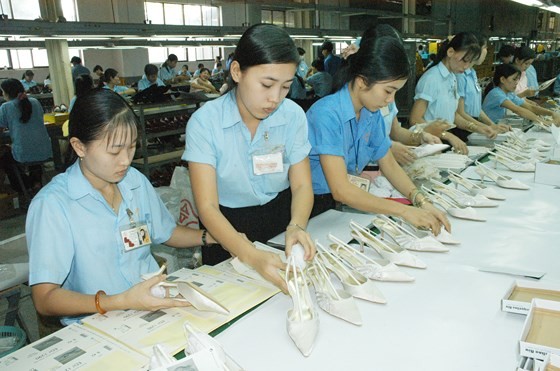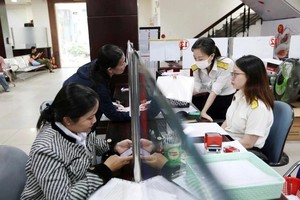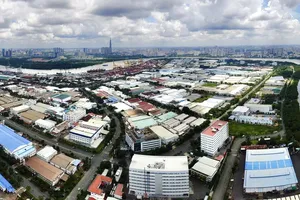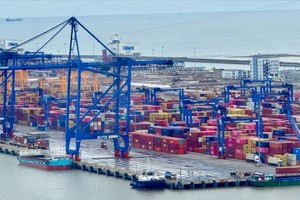
According to Vietnam Leather, Footwear and Handbag Association (Lefaso), last year businesses produced nearly 1.2 billion pairs of shoes and sandals; accounting for 5.2 percent of the world’s output and ranking third after China and India. Shoe and sandal export turnover hit $14.6 billion while handbags touched $3.2 billion.
The industry posted a year on year growth rate of 10.7 percent, contrary to gloomy forecasts since early 2017.
Despite the achievements, the industry also faced lot of difficulties forcing businesses and policymakers to quickly have right policies and decisions to cope with.
Although the industry maintained two digit growth rate, foreign direct investment (FDI) firms accounted for over 80 percent of the total export turnover.
Meantime, domestic companies have not expanded production because of difficulties. Their export ratio dropped from 25 percent in 2013 to 19.4 percent in 2017.
Of these, footwear and sandal export reduced from 24.4 percent to 19.5 percent, handbags slid from 27.9 percent to 19.9 percent. According to estimation by Lefaso, the labor productivity of domestic firms accounts for less than 50 percent of FDI companies.
Low labor productivity is one of reasons causing the footwear industry make up 75 percent of production volume but less than 20 percent of total export turnover. In addition, nations with strength in footwear making and export such as Bangladesh and Myanmar have continued protection policies to attract orders and boost export, creating a big competitive pressure on domestic firms.
Their labor cost is slow and they have enjoyed tax incentives from the EU, causing some simple orders leave Vietnam for these nations.
Therefore, if domestic firms do not improve labor productivity, they will face not only severe competition in export market but also danger of losing in their home field, says economic export Nguyen Duc Minh Hai from HCMC National University.
Deputy chairwoman cum secretary general of Lefaso Phan Thi Thanh Xuan said that this year leather and footwear companies would face challenges from Industry 4.0. and labor productivity improvement.
Surveys show that 75 percent of leather and footwear firms have met difficulties in investing in automation, about 20 percent have started at small scale and below 5 percent are planning to start their operation.
The withdrawal of the United Kingdom from the European Union has also directly affected footwear export.
The Lefaso advised domestic businesses to lower their labor cost by removing plants to areas with abundant labor force, expand their investment in support industry to improve added value for products and the proactive of production firms.
The Lefaso will intensify consulting government agencies on the issue of policies related to production and trading to help businesses obtain the set export target, popularizing polices on investment attraction to develop support industry and increase localization rate.
Recently, the Lefaso has proposed the Government to remove obstacles hindering the industry’s development, abolish infrastructure fee collection at seaports and many types of fees during the transport of goods at seaports and in roads to bring the leather, footwear and handbag industry a motivation to develop.
























